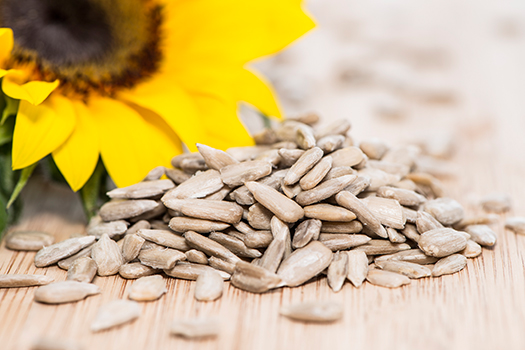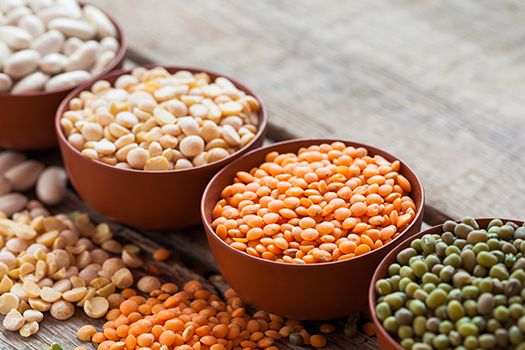
Functional food ingredients from plant raw materials

We functionalize plant-based food ingredients in a tailor-made way
We develop functional food ingredients such as proteins and dietary fiber from a wide variety of plant raw materials including leguminous plants, oil seeds, and secondary materials from the food industry. To do this we optimize wet/dry recovery methods and processing steps in the laboratory and on a small pilot plant scale for specific raw materials and tailored to your application. The food ingredients are analyzed for their chemical composition, functional properties, molecular weight distribution, presence of endogenous enzymes and enzyme inhibitors, and other antinutritive components.
We test the food ingredients in sample products produced in our food pilot plant. Any changes to products during storage are measured in storage tests and using a trained sensory panel.
Which plant-based food ingredients can you use?
- Plant proteins
to replace animal proteins and for protein enrichment of foods and improvement of the functional properties
- Dietary fiber
for positively influencing metabolic functions such as sugar levels
- Plant oils and oleogels
for quality improvement
- Secondary plant substances
to increase the value of foods, for example the use of polyphenols with an antioxidative effect
Optimize the sensory and functional properties of your products by customization of your ingredients.
Raw materials for plant-based food ingredients

Raw materials we use include seeds of leguminous plants, cereals, pseudo-cereals, and oil seeds. Secondary materials from the food industry that have hitherto only been partially utilized such as press cake from oil mills, bran from cereal mills, and materials from the processing of fruit and vegetables also contain high-quality components that we recover as functional ingredients. We transfer our knowledge of producing plant-based food ingredients to other alternative raw materials such as fungi (mushroom mycelium), algae or insects.
We promote the sustainable use of biogenic raw materials

In order to maximize the utilization of the raw materials in a sustainable way we develop holistic processing concepts that enable the recovery of several fractions. Secondary materials that arise (extraction residues, permeates, process water) are where possible returned to the manufacturing process via cascade systems and suitable recycling concepts. This enables economically viable processes with high product yields to be realized.
The utilization of sustainable raw materials means we are making a contribution to safeguarding the world's food needs. The production of healthy and safe foods is central in all our development work.
 Fraunhofer Institute for Process Engineering and Packaging IVV
Fraunhofer Institute for Process Engineering and Packaging IVV